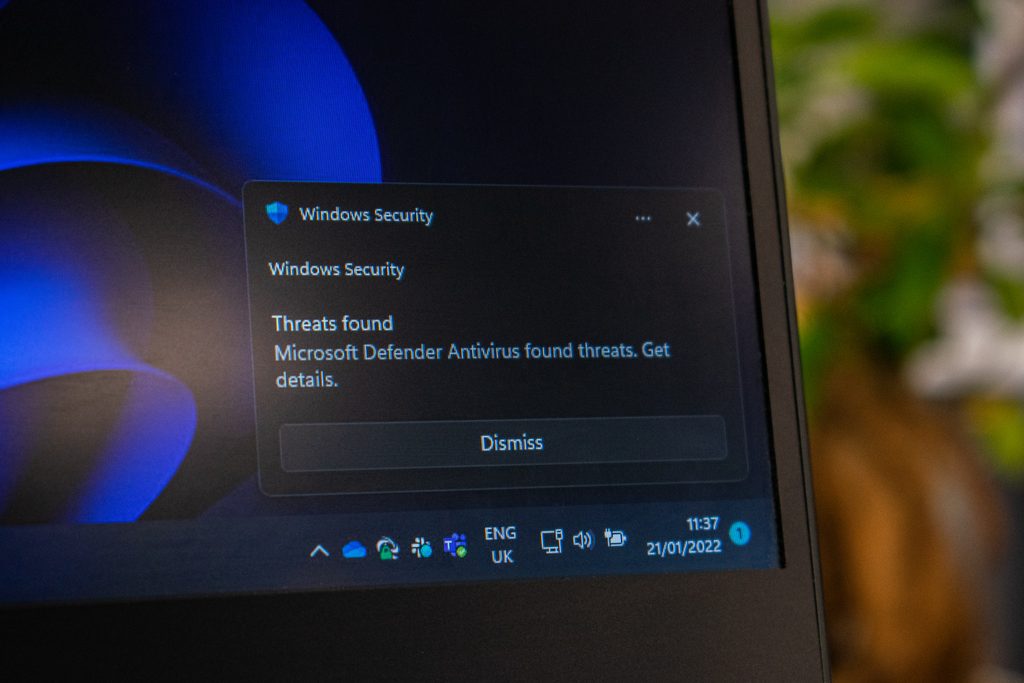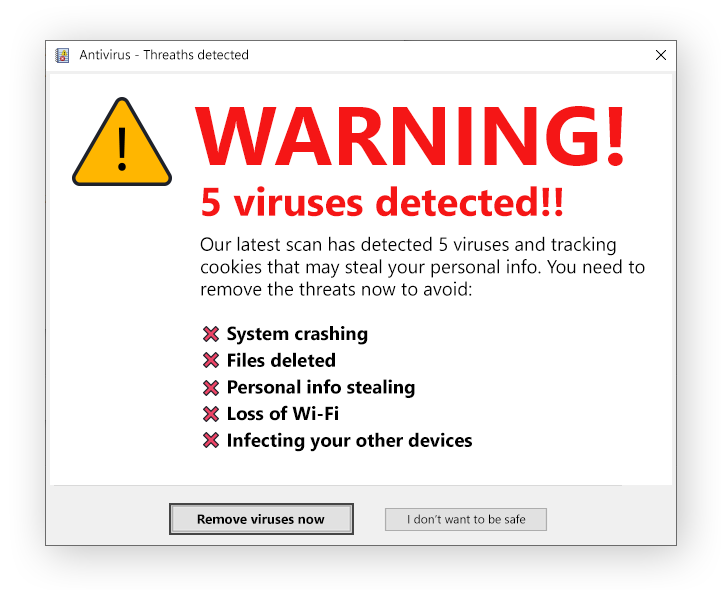At HelpCloud we like to focus on teaching our members (and any reader of our blog posts) on how to protect themselves and their data while using their computer or any device connected to the internet. In order to protect yourself, knowledge is key. It's been a little while since we've released a blog post with updated information on what malware is and how to protect yourself. In this blog post we'll break down five different types of malware by defining them and giving examples. Then we'll conclude with how to be proactive against malware.
If you're a HelpCloud member, you are also entitled to call or contact us 24/7 in order to discuss general questions about malware or have us connect, scan and remove malware from your computer or smartphone. Learn more here about HelpCloud Services.
Here are some of my favorite HelpCloud blog posts and video concerning the topic of malware:
- How to Recognize and Avoid Malware
- How to Remove a Virus or Malware from Your Android Smartphone
- How to Remove a Virus or Malware From Your iPhone
- Everything You Need to Know About the Latest macOS Malware (as Well as How to Best Protect Yourself)
Most Common Types of Malware Defined
There are a lot more than five different types of malware but we'll focus on some main ones and the types of malware that you are most likely to encounter.
Phishing
Phishing remains one of the most common types of malware. The Oxford Dictionary defines phishing as, "the fraudulent practice of sending emails purporting to be from reputable companies in order to induce individuals to reveal personal information, such as passwords and credit card numbers." This malware is most commonly present in email but you can also find it on social media. In fact, our HelpCloud Facebook page has to continually block these scammers. We wrote a very specific write-up on this: The Facebook Military Romance Scam: What it looks like and how to avoid the scam .
More common is phishing via emails. Something to keep in mind is that legitimate companies will not request that you submit via email your social security number, credit card information, banking account information, or other personal information. Security Metrics wrote up a great post on how to recognize phishing emails . Additionally, do not click and visit links from unverifiable senders and do not enter private or financial information into an unverified website, especially if you do not have an account you are logged into.
Ransomware
According to Wikipedia ransomware is, "... a type of malware from cryptovirology that threatens to publish the victim's personal data or permanently block access to it unless a ransom is paid. While some simple ransomware may lock the system without damaging any files, more advanced malware uses a technique called cryptoviral extortion." Ransomware famously targets businesses, as the cybercriminals know that these companies can most likely pay the fee in order to free up their systems. But it's also a danger for your everyday user. We have a great summary of ransomware on our youtube channel:
Don't visit suspect websites, don't download unknown files. That is your best protection from ransomware.
Adware
Adware is the most common type of malware that we remove from our customer's computers. Adware is "software that automatically displays or downloads advertising material (often unwanted) when a user is online." For example, you think you're clicking on a specific website and then in your URL bar you see that the URL is changing rapidly, and you end up on a completely different website. Oftentimes adware is in the form of pop-ups. They can be very intrusive and hard to close. These pop-ups sometimes contain spyware or " browser hijackers " and are what cause these redirects when you are trying to visit a website. Adware is mostly annoying but it has negative impacts on your computer. It can greatly slow your system or cause other issues.
Spyware is also a part of adware. Spyware is what it sounds like and is software that covertly steals information from your computer and your online behavior. How the cybercriminal exploits that is up to them, but is nefarious nonetheless. Learn more about adware in this video:
Scareware
According to AVG, "Scareware is a type of malware that uses social engineering techniques to frighten you into downloading or buying fake security software. The fake virus warning pop-ups and other security alerts try to manipulate victims into paying for useless software that may actually be malware itself." I would add that scareware also instructs you to call a phone number, and from there the scam continues. Here is a good example:
Here at HelpCloud, many of our members know to call us whenever they get a pop-up or message like this. Our representatives spend quite a bit of time explaining that the intimidating pop-up is actually not a true message from Microsoft, Mac, or an antivirus provider. Even if the customer did not engage with the pop-up, we still connect, remove the pop-up, scan the computer, and remove any detected malware.
We do remind our customers that Microsoft or any other operating system provider will not send you pop-ups with such language, and demand that you call a certain phone number or to click a button to immediately "fix the issue". Do not click the pop-up. If a download begins when you engage with the pop-up, immediately use your antivirus software to find and delete the malware. If this is too complicated for you, reach out to HelpCloud!
Trojans
Trojans are some of the most well known malware types. According to our partner antivirus provider Webroot , "A Trojan, or Trojan horse, is a type of malware that conceals its true content to fool a user into thinking it's a harmless file. Like the wooden horse used to sack Troy, the "payload" carried by a Trojan is unknown to the user, but it can act as a delivery vehicle for a variety of threats." Webroot furthers goes on to explain how to detect if you have a trojan on your computer:
- Poor device performance- Is your computer or mobile device running slowly or crashing more frequently than normal?
- Strange device behavior- Are programs running you didn't initiate or are other unexplained processes being executed on your device?
- Pop-up and spam interruptions- Are you noticing an uptick in the number of interruptions from browser pop-ups or email spam? Source
How to be Proactive Against Malware
There are a number of things you can do to prepare for, avoid, detect, or remove malware. Prevention is your best tactic against malware. Reading articles like this one will inform you as to the tactics cybercriminals use for malware and how to detect malware.
In your email be sure not to download attachments from unknown sources, not to send private financial information via email, and also verify if the email sender is legitimately from the organization they say they represent.
Trust and use Windows Defender or download a premium antivirus software. We always suggest Webroot SecureAnywhere as it is lightweight on your computer (doesn't slow it down) and we trust its ability to prevent, scan, detect, and remove malware. Regardless, there are multiple reliable partners out there. If you do not feel comfortable with your knowledge of malware while using the internet, be sure to purchase a software that protects you while you browse, ex. Webroot Internet Security Plus .
Things happen. Malware happens. In the most severe circumstances, you lose your entire system including all your user files (documents, pdfs, photos, videos, etc.). Prepare for these situations by getting a cloud backup service. HelpCloud partners with IDrive Cloud Backup and Storage . If you have all your files backed up, that makes dealing with malware so much easier.
I remember growing up (before cloud drives) and our family computer getting malware. We would lose everything, including lots of school work. For someone like me, that was a little devastating. Luckily nowadays, this is avoidable but paying a few dollars a month in order to have a daily backup of your files. In the event that this happens, you can access your cloud drive and download all those files to your new operating system after the malware has been fully removed.
Conclusion
Recognizing malware is the key to preventing malware infections or dealing with malware in its early stages. As stated, knowledge is crucial! HelpCloud does its best to educate our customers and non-customers. But we know this can be overwhelming. Members can reach out to us 24/7 with any question or concern regarding malware. Consider a membership as it includes a premium antivirus provider (to prevent, detect, and remove malware), unlimited data backup in the cloud (in the event that malware causes you to lose all data), quarterly computer cleans (to be sure to remove any malware), and 24/7 tech support for any at-home tech issue. We're here for you!



